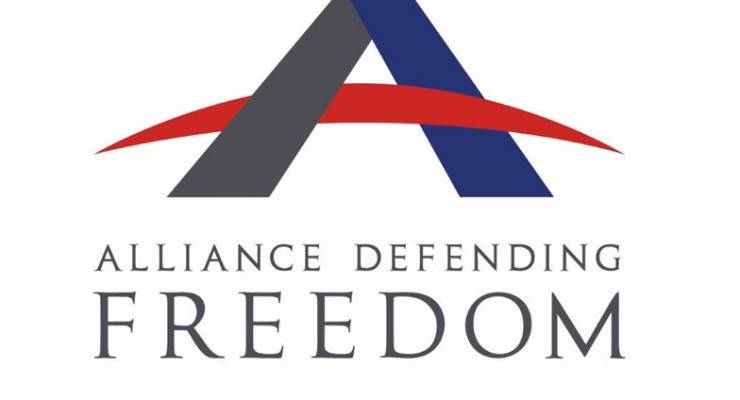
The Australian Christian Lobby’s new legal arm, the Human Rights Law Alliance, will likely follow the pattern of litigation pursued by the Alliance Defending Freedom (ADF), a US -based homophobic group responsible for test cases and legal challenges that try to enforce a hard-line Christian version of the law.
Former ACL chief of staff and managing director of the Human Rights Law Alliance Martyn Iles confirmed to Crikey this week that the alliance had been founded and funded by the loud and influential lobby group in order to use the courts to defend freedoms of “conscience, religion and belief”.
Senior counsel and senior vice president of training at the ADF, Jeffery Ventrella, was a star attraction at the Australian Christian Lobby’s annual conference in April this year. Before the conference, ACL head Lyle Shelton defended Ventrella’s appearance, saying:
“If this is where it’s going that it’s no longer tolerated that you can hold the view that marriage is between a man and a woman then obviously we’re going to need legal representation to protect those freedoms and that’s why we’ve invited ADF to our conference.”
The Human Rights Law Alliance’s first major test case is that of Kathy Clubb, a mother of 13 arrested in Melbourne for protesting within a Safe Access Zone outside an abortion clinic. Clubb and the alliance say they want to challenge the constitutionality of Victoria’s exclusion zones in the High Court.
The Alliance Defending Freedom has existed in the United States since 1994 and was once known as the Alliance Defense Fund. It had revenue of more than US$60 million in the 2015 financial year, largely from cash donations.
Former prime minister Tony Abbott addressed the ADF in January this year, speaking on the topic of “the importance of family”.
The ADF successfully challenged a 35-foot buffer zone around abortion clinics in Massachusetts in the Supreme Court in 2014 and was a major force in the “Hobby Lobby” case, where businesses challenged a section of Barack Obama’s Affordable Care Act that required the health insurance packages that businesses offered to their employees include contraception. The Supreme Court challenge was also successful in 2014 after years in the courts, meaning that businesses can now legally be treated as people with religious freedom rights in the US. The New York Times calls the ADF “the largest legal force of the religious right”.
The ADF is currently supporting a florist in Richmond, Washington, who refused to supply flowers to a same-sex wedding, and has just filed a petition with the Supreme Court supporting a Virginian school’s ban on transgender people using bathrooms that do not correspond with the biological sex they were born with.
President of the Australian Lawyers for Human Rights Benedict Coyne says the use of euphemistic names like the Alliance Defending Freedom and the Human Rights Law Alliance is “deeply conerning and deeply problematic”.
Coyne believes the public can see through groups like the HRLA and the ADF. “There’s probably a case for misleading conduct with a term like that.”
“If it walks like a duck and quacks like a duck, it’s probably a duck, and they can’t pretend it’s a chicken.”
Coyne says that the HRLA will face different challenges to the ADF, as Australia does not have a bill of rights, and only an implied right of political communication.
“It’s an entirely different legal landscape from the United States, but lobbying politically is an adaptable and flexible policy that can be used anywhere.”
Coyne says that progressive legal groups could become more litigious in answer to the moves by the hard right, but that Australia’s legal culture does not lend itself to the involvement of groups like the American Civil Liberties Union, which is active for progressive causes in the US. Groups like the ACLU use “amicus curiae briefs”, which means “friend of the courts”, which is where groups can make submissions to the court on particular issues of the law, including human rights, even if they are not a party to the case.
Litigation prioritising the right to freedom of speech above other human rights also exhibits a willful misunderstanding of how human rights law works, says Coyne.
“It is the most basic misconception of human rights law and peddling propaganda for a very heated hot air agenda for inequality is such a deep misconception of international human rights law. Even a first-year law student would not make such mistakes.”








If it walks like a duck, and quacks like a duck, kill it and cook it..!!
A tasteless comment perhaps in the context of abortion.
I think that you are being modestly Swiftian.
Is that logo a touch homoerotic, or am I just happy to see you ACL
It looks to me like they stole it from the Australian Industry Group
https://encrypted-tbn2.gstatic.com/images?q=tbn:ANd9GcSvtRIQqtgtS0vj1fEvACpUvk1pL68BtDtVjbUjShuhCyyIxyqF
The ACL is bringing the worst elements of American culture to Australia. As a Christian, I cannot stand them. They don’t represent me or my faith. They cloak their hateful prejudices in the language of religion but they are awful, awful people at the fringes of society.